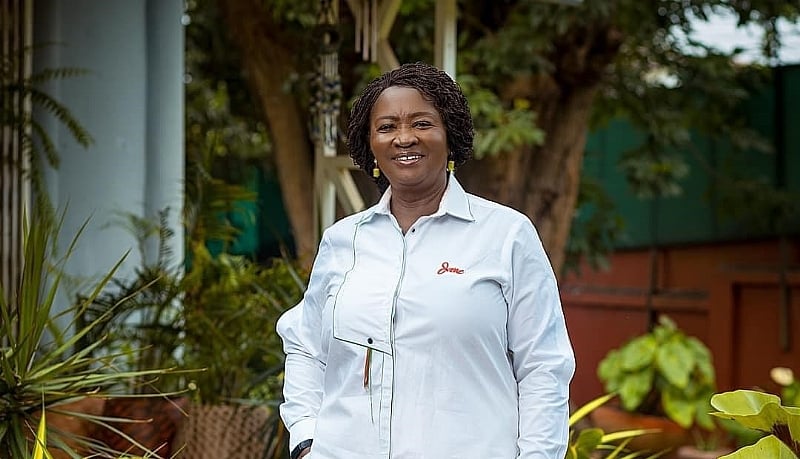Paragraph 1: A Call for Prayers and Goodwill
During the Eid-ul-Fitr celebration in Ghana’s Ashanti Region on March 31, 2025, Dr. Frank Amoakohene, the Ashanti Regional Minister, delivered a message on behalf of President John Dramani Mahama, requesting special prayers for Vice President Professor Jane Naana Opoku-Agyemang. The Vice President was undergoing medical treatment, and the President urged the Muslim community, including the Chief Imam, Imams, and even head pastors, to remember her in their prayers during the holy month of Ramadan. This call for prayer extended beyond mere well wishes for her health and recovery, but also specifically requested divine intervention against any "evil plots" targeting her, asking that such negativity be transformed into positive outcomes. This public acknowledgement of the Vice President’s health situation and the request for spiritual support underscored her importance to the nation and the government’s concern for her well-being.
Paragraph 2: Acknowledging Interfaith Contributions
Beyond the specific prayer request for the Vice President, Dr. Amoakohene also took the opportunity to express gratitude to faith-based organizations, particularly the Muslim community, for their significant contributions to infrastructure development across Ghana. This recognition highlighted the collaborative relationship between the government and religious groups in nation-building. By acknowledging the Muslim community’s role in infrastructure projects, the Minister reinforced the message of unity and partnership in addressing national development goals. This public acknowledgement served to strengthen the bond between the government and religious communities, fostering a sense of shared responsibility for the country’s progress.
Paragraph 3: Focus on Agricultural Development and Youth Engagement
Shifting the focus to economic development, Dr. Amoakohene emphasized the government’s commitment to promoting agriculture as a key driver of growth. He highlighted the available opportunities within the agricultural sector and encouraged communities to actively support and promote youth involvement in this crucial area. Recognizing the potential of agriculture to create jobs and improve livelihoods, particularly for the younger generation, the government’s message aimed to stimulate interest and investment in this sector. By urging community leaders to facilitate youth participation in agriculture, the government signaled its intention to create a more sustainable and inclusive agricultural sector.
Paragraph 4: Government’s Commitment and Community Partnership
The government’s commitment to agricultural development was further underscored by Dr. Amoakohene’s invitation for interested individuals and communities to communicate their interest and needs through their respective community leaders. This proactive approach aimed to ensure that government support and resources reached those who needed them most. By establishing clear communication channels through community leaders, the government sought to streamline the process of accessing agricultural opportunities and effectively address the needs of the agricultural sector at the grassroots level. This participatory approach fostered a stronger sense of ownership and responsibility within local communities.
Paragraph 5: The Significance of Ramadan and National Unity
The backdrop of the Eid-ul-Fitr celebration provided a significant context for the messages conveyed by Dr. Amoakohene. Ramadan, a month of fasting, prayer, and reflection for Muslims, emphasizes the importance of community, compassion, and spiritual renewal. By choosing this occasion to address the nation, the government leveraged the shared values of unity and solidarity that are central to both the Islamic faith and national development. The call for prayers for the Vice President during this holy period further emphasized the spirit of collective responsibility and concern for the well-being of the nation’s leaders.
Paragraph 6: Interpreting the Political and Social Context
The messages conveyed during the Eid-ul-Fitr celebration can be interpreted within a broader political and social context. The government’s acknowledgement of the Muslim community’s contributions, the focus on agricultural development, and the emphasis on youth engagement all reflect strategic priorities aimed at fostering inclusive growth and social harmony. The public prayer request for the Vice President, while a gesture of genuine concern, can also be viewed as a symbolic act of national unity and solidarity, demonstrating the importance of collective support for national leaders during challenging times. The event, as a whole, showcased the government’s efforts to engage with diverse communities, build partnerships, and address key development challenges through collaborative efforts.


